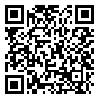Volume 10, Issue 1 (6-2023)
vacres 2023, 10(1): 45-50 |
Back to browse issues page
Download citation:
BibTeX | RIS | EndNote | Medlars | ProCite | Reference Manager | RefWorks
Send citation to:



BibTeX | RIS | EndNote | Medlars | ProCite | Reference Manager | RefWorks
Send citation to:
Tafreshi S H. Which One Should Be Prioritized During Pandemics: Patents or Global Health?. vacres 2023; 10 (1) :45-50
URL: http://vacres.pasteur.ac.ir/article-1-341-en.html
URL: http://vacres.pasteur.ac.ir/article-1-341-en.html
New Technologies Research Group, Research and Production Complex, Pasteur Institute of Iran, Alborz, Iran
Abstract: (2562 Views)
Introduction: Despite the existence of the human health rights at global and national levels, patent laws are singularly in the battle against public health crises due to exclude others from making, using and selling the patented health products. These laws impose costs on health care systems and cause of human death worldwide. Methods: A retrospective literature search was conducted using appropriate key words. In addition to international intellectual property rights, published studies were reviewed. Results: Experiences from the Medicines Act in 1997 of the South Africa and the current pandemic showed that compulsory licensing and parallel importation do not have the necessary effectiveness and cause economic and political pressure of developed countries on developing countries. In addition, high price of technology transfer, insufficient disclosure of necessary data and commercial impediments by patent holders, make virtually impossible to apply TRIPS waivers in national emergencies and pandemics. Insufficient manufacturing capacity of health products manufacturers and prompt need of people worldwide to essential health products in public health crises, lack of transparency and interpretable Articles of the TRIPS Agreement hamper rapid and sufficient production, adequate and equally supply of the effective and affordable essential health products. Conclusion: The South Africa case and the current pandemic clearly showed the ineffectiveness of TRIPS waivers, public health endangerment and loss of human lives in public health crises. Once and for all, through national legislation and international treaties, the lack of access issues to essential health products in public and global health crises must be solved
Send email to the article author
| Rights and permissions | |
 |
This work is licensed under a Creative Commons Attribution-NonCommercial 4.0 International License. |

This work is licensed under a Creative Commons Attribution-NonCommercial-NoDerivatives 4.0 International License.






